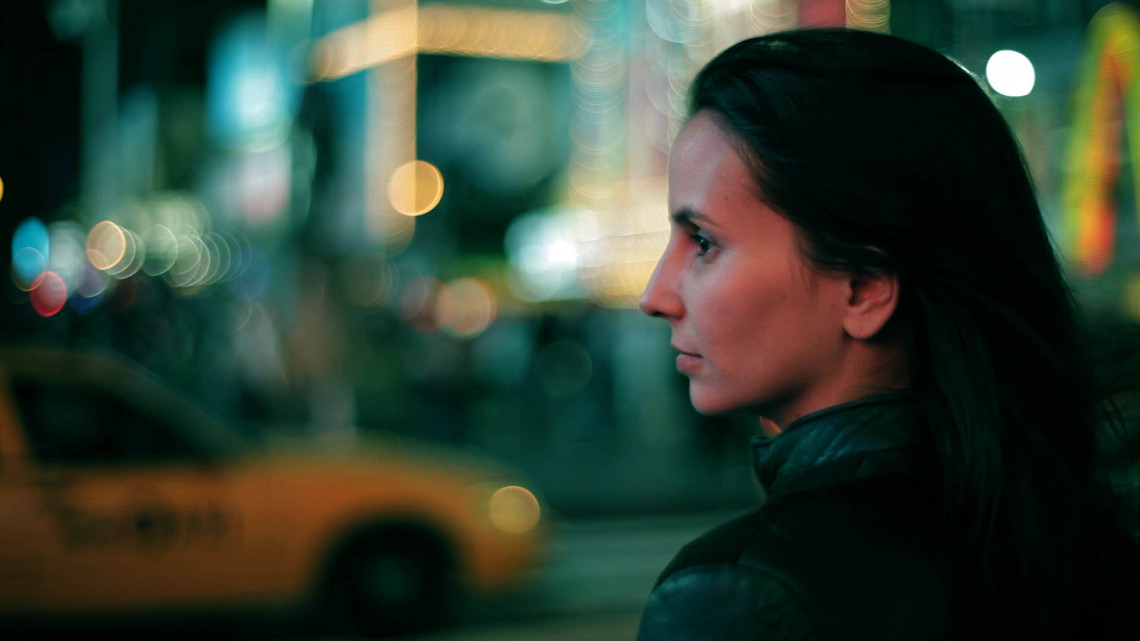Director Petra Costa has taken the documentary as personal investigation in a new direction with Elena, which is heavily infused with the influence of her acknowledged idol, Chris Marker. Oneiric and kaleidoscopic, the film shuffles symbolic imagery into its primary materials, along with a sedate narration from Costa. Elena seeks more to impress her feelings upon the viewer than to tell its story, which is at its core quite simple. The film drifts apart in its last stretch, but that doesn’t diminish the overall effort.
The namesake character is Elena Andrade, Costa’s older sister. In 1990, the 20-year-old Elena left her family in Brazil to move to New York City, seeking work as an actress. But her journey ended tragically, and Costa has been nursing her pain over that loss ever since. Costa later discovered more than 50 hours of home video footage shot by Elena, and used it as the basis for this film. Costa contrasts Elena’s move with her own immigration to the United States, made for the same reason as her sister. Through the meager traces Elena left of her existence, Costa hopes to reconstruct what happened to her, and at the same time relives their childhood and her grief over Elena’s death.
More than anything else, Elena excels at communicating a profound sense of mourning. Dear Zachary, another documentary about working through the loss of a loved one, set up filmmaking as a form of time travel and resurrection. This film is doing the same thing. In remaking Elena, it also carves a gap in her shape onto the viewer’s mind. She seemed a vibrant, hard-working, soulful young woman, and knowing what’s coming concocts queasy dread in the early stages of the film, which turns to dejectedness once the death has passed.
It’s also after that event passes that the movie loses something. More impressionistic images flood the screen, and the thoughts of Costa’s narration becomes disconnected. It seems clear that the movie wants to evoke the confusion of the immediate aftermath of losing someone, which reawakens whenever you dwell on it for too long. But this long section, nearly the last third of the movie, overwhelms with repetition. If that feeling were anything but frustration, it’d be laudable.
But it’s difficult to fault a documentary too severely for shaking things up stylistically, especially since the default is to point and shoot some interviews, then mix in infographics and relevant stock footage. Costa devises a great recurrent allusion to Ophelia from Hamlet, drawing lines between that character and Elena, along with her own pervasive survivor’s guilt. Water, dancing, and the movement of bodies through that water dominate the visuals constructed for the doc. They match terrifically with Elena’s home movies. The movie is least interesting when it walks the standard documentary route. Costa interviewed her mother about Elena’s life, and it feels like there was a way to better incorporate her into the story that went ignored.
Elena stands firmly in the burgeoning movement of documentaries that seek artistic viability even as they rearrange reality. It’s a trend that’s encouraging to see, and while it missteps, that’s a natural side effect of experimentation. Petra Costa will have more great stories to tell going forward.





















One thought on ““Elena” Experiments With The Documentary Form To Encouraging Effect”
Pingback: The 2014 Cinematic Retrospectivus